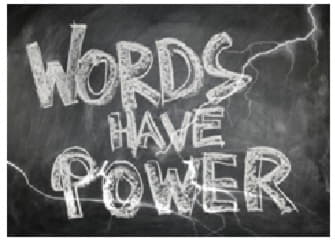
If the words’ I’m sorry” stick in your throat, you aren’t alone. Few people look forward to apologizing. While it’s probably true that the reasons’ to apologize are anything to celebrate, the value of an apology itself has great merit because it is a chance to strengthen your relationship with the receiver.
Apologies can be challenging because saying “I’m sorry’ can also –
- Make you look weak
- Make others lose respect for you
- Give the other person ammunition to use against you later
- Damage your career or reputation
- Create embarrassment
- Lead to anger
- Create unattractive consequences
- Make things worse
Which is why it is important to learn how to apologize the correct way.
It’s nice when things are going smoothly but the test of your relationships occurs when a hurdle or crisis occurs. How you help one another in the wake of an error is the test and the builder of effective relationships with people.
When an apology is called for -
- Don’t wait. You shouldn’t have to be asked for your apology or an explanation. Take the initiative and be proactive.
- Offer help. Don’t only apologize but offer whatever assistance you can to make things right. You are not seeking to just repair the damage but trying to improve relations.
Apologize WellNot only is it important to offer a remedy, but how you go about making that offer is important as well:
- Apologize; say that you are sorry.
- Empathize; express understanding of the other person’s feelings.
- Shape the conversation so that as you are working towards a solution, ‘I’ and ‘you’ become ‘we” and ‘us.’
Be aware of the difference between an explanation and an excuse. You owe the injured party an explanation. Outline the facts and circumstances that surround the error. They don’t want to hear why the problem wasn’t your fault. If your explanation serves to vindicate you, that’s good. If not, offer no additional defense.
Sometimes the words are hard to find. If you are in search of a script, see if the following can be adapted to your situation:
“I’m very sorry that I was late with the data you needed. I know that put you in a difficult position.”
“I’m willing to explain to the VP that the problem was on my end. We didn’t get the results back from the client on time. There was nothing I could do about that, but I should have told you as soon as I saw that there was going to be a problem. I’d like to explain that to the VP.”
“I know the VP has a short fuse about that sort of thing. I’m sorry to have put you in the line of fire.”
Beware the Fake Apology
When you tell someone you are ‘sorry that they feel that way,’ you are not truly apologizing. You are expressing regret that they were upset or offended. You might feel badly about the words you used but not really the sentiment you expressed or the action you took. You might have some remorse about the result you caused, but not the action that you took in the first place to cause the result.
If you don’t really understand why people are upset, it’s hard to apologize!When you offer an apology, the implication is that you won’t repeat the offense. To do that, you’d have to understand what you did that was wrong.
Most people can see a phone apology for what it is – an unwillingness to step up and accept responsibility.
Sorry!
Joni Daniels is Principal of Daniels & Associates, a management training and development consulting practice that specializes in developing human resources in the areas of leadership and management training, interpersonal effectiveness and efficiency, skill- building, and organizational development interventions. With over 20 years of experience, she is a sought after resource for Fortune 500 clients, professional organizations, higher education, media outlets and business publications. Joni can be reached at http://jonidaniels.com







